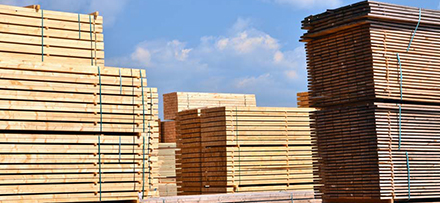Timber shortages that caused delays and cost blowouts in the construction industry are finally easing as international supply chains open up, but experts warn that Australia desperately needs to increase local capacity to avoid a “false dawn”. Source: The Australian
Master Builders Association acting chief executive Shaun Schmitke said that while there had been massive pressures on timber and wood supplies affecting builders “there are signs this is starting to ease”.
“Looking ahead, there are good signs that global commodity prices have passed their peak and are on the way down again. With improvements in shipping costs and times, we may see a considerable easing in building material cost pressures over the year ahead but this is subject to the evolving situation in China,” Mr Schmitke said.
Some wholesalers are reporting carrying excess stock of many softwood timber products.
Despite running at capacity for more than a year and struggling to source local supplies of timber, sawmills have reported decreasing demand from the construction industry due to the housing market slowdown, according to the Australian Forest Products Association.
However, AFPA chief executive Ross Hampton said there was still enormous uncertainty in timber supply chains internationally, which Australia needed to address by increasing capacity. “It’s imperative we increase planting rates in Australia to urgently supply much more of our building needs,” he said.
“If we’re relying on up to 25% of house framing to come from places as far as northern Europe and Russia, we’ll always be very vulnerable.”
While he commended the allocation of $86m in grants over five years for private investors and farm foresters to plant more trees, he said none have been planted. Mr Hampton said it was essential this be started by winter to prepare for a future deficit caused by new housing for a growing population. “It needs to happen urgently.”
A spokesman for Forestry Minister Murray Watt said the government had no direct role in the management of forestry plantations but was committed to assisting the industries meet growing demand for products with the grants, and that applications would open in mid-2023.
Australian Timber Importers Federation general manager John Halkett said the industry would be vulnerable to shortages again when construction activity picked up from the second quarter of this year, with the construction backlog and the promotion of government housing initiatives. “There have been measures to improve house … supply by the government but they haven’t paid enough attention to supply side,” he said.






